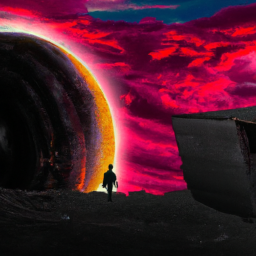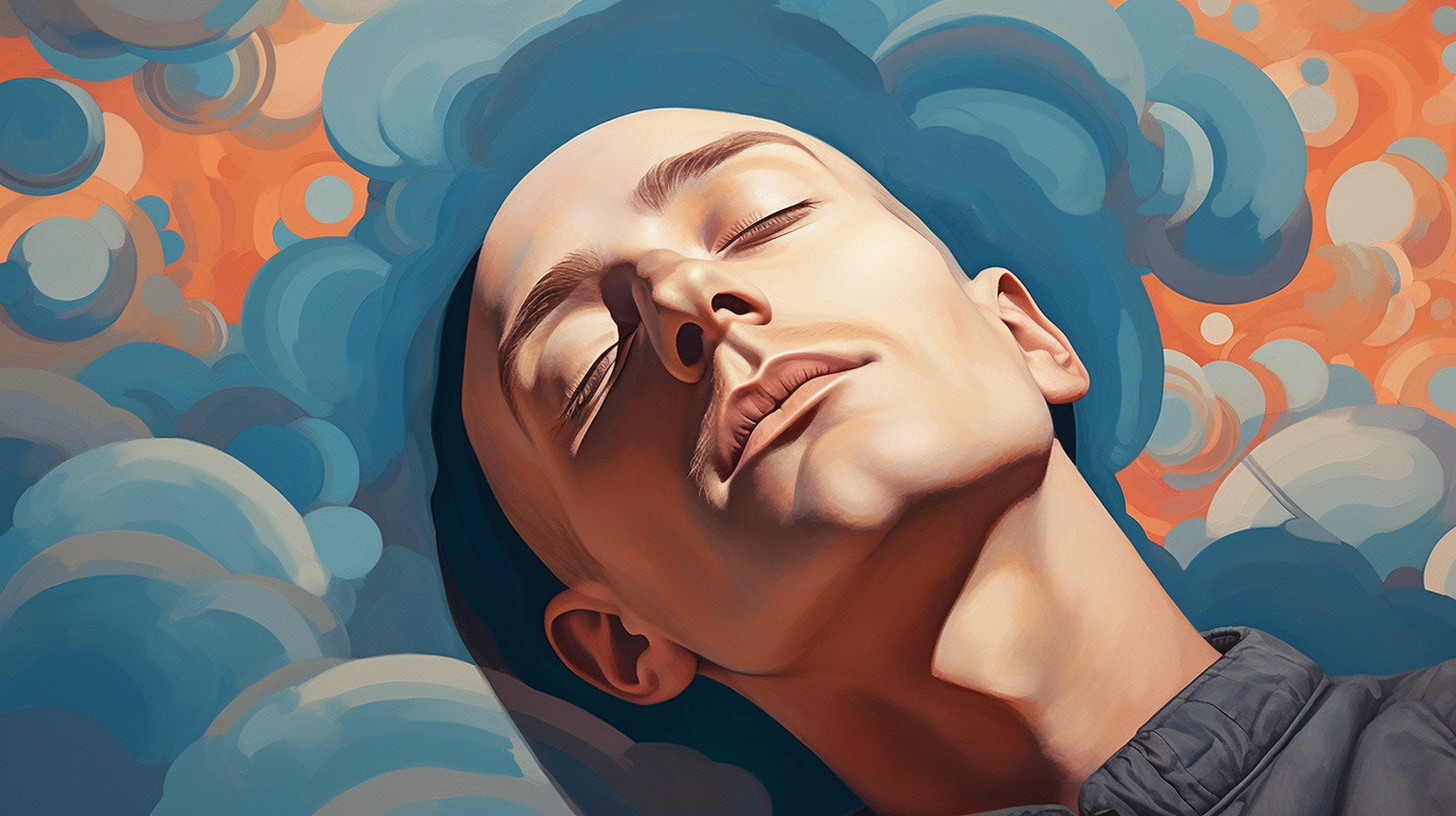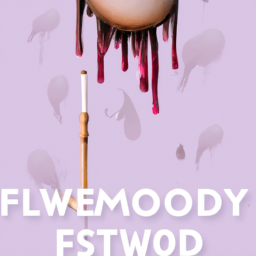Did you know that about 75% of people have had dreams about the apocalypse at some point in their lives? As someone who has also had these dreams, I understand the fear they can create.
But what do they actually mean? Why are we having them? And is there anything we can do to alleviate the fear and anxiety they may cause?
In this article, I will explore the different types of apocalyptic dreams and provide both psychological and spiritual interpretations for their meaning. We will also discuss how to analyze dream symbols and personalize our own dreams to better understand their messages.
Whether you believe that dreams hold significance or not, understanding why we have these types of dreams can help us prepare for the future and gain a deeper understanding of ourselves. So let’s dive in together and unravel the mysteries behind our apocalyptic dreamscapes.
Key Takeaways
- Apocalyptic dreams are common and can symbolize the end of something significant or a major change in our lives.
- Analyzing dream symbols can reveal underlying anxieties and emotions, such as being chased or pursued, escaping disaster, and fighting for survival.
- Understanding the subconscious meaning behind apocalyptic dreams can help address underlying fears and anxieties, leading to finding inner peace and stability.
- Mental preparation, survival techniques, personalizing dreams, and seeking professional help are all important in dealing with apocalyptic dreams and potential emergencies or disasters.
Types of Apocalyptic Dreams
Want to know the different types of apocalyptic dreams? Let’s dive in!
There are various types of apocalyptic dreams that people have, and each has its own unique interpretation.
One type of apocalyptic dream is a natural disaster, where you dream about catastrophic events such as earthquakes, floods, or hurricanes. These dreams may be caused by the fear of losing control in your life or feeling overwhelmed by certain situations.
Another type is a war or conflict dream, where you see yourself fighting for survival against an enemy or group. These dreams can be triggered by current events happening around the world, media exposure to violence and conflicts, or even personal struggles with relationships.
To prevent these kinds of nightmares from occurring frequently, it’s important to manage your stress levels and stay informed without being overly consumed with negative news.
Moving on to psychological interpretation…
Psychological Interpretation
Hey, you know that feeling when you wake up from a nightmare and your heart is pounding in your chest? Well, according to the experts, those apocalyptic dreams might actually be trying to tell you something about yourself.
Exploring symbolism can help us understand what our subconscious is trying to communicate through these intense and frightening dreams. Apocalyptic dreams often symbolize the end of something significant or a major change in our lives. It could represent a fear of losing control or power, feeling overwhelmed by current challenges, or even a fear of death.
Understanding the subconscious meaning behind these dreams can help us address underlying fears and anxieties we may not have been consciously aware of. By recognizing and confronting these emotions, we can work towards finding inner peace and stability.
With this knowledge in mind, let’s dive into how spiritual interpretation can further shed light on the meaning behind apocalyptic dreams.
Spiritual Interpretation
As I delve into the spiritual interpretation of apocalyptic dreams, I can’t help but ponder on the three key themes that arise: End Times, Judgment Day, and Divine Intervention.
In the context of a dream, these themes can signify a deeper meaning that speaks to our subconscious fears and beliefs.
The concept of End Times represents an ultimate conclusion or finality that we may fear in our waking lives.
Judgment Day symbolizes accountability for our actions and decisions, while Divine Intervention points towards a higher power guiding us through life’s challenges.
End Times
The idea of the End Times has been a prevalent theme in various religious and cultural beliefs, often associated with apocalyptic dreams and visions. Theological implications of the end times suggest that it’s an event that’ll happen at some point in time, marking the end of human history as we know it.
This belief is anchored on cultural impact, which suggests that every culture or religion has its own version of the end times. A deeper meaning for apocalyptic dreams in relation to the end times includes:
- A warning sign from a higher power about impending doom
- An opportunity to prepare for tough times ahead
- A call to action towards living a more righteous life
As such, if you’ve had an apocalyptic dream about the end times, it may be time to take stock and make changes towards living a more fulfilling life before judgment day comes.
Judgment Day
Get ready for Judgment Day – it’s the moment when all of humanity will have to face the ultimate reckoning.
According to religious texts, there are certain signs that signify the arrival of this day. These include natural disasters, wars, and moral decay. It is believed that these signs will increase in frequency and intensity as we get closer to the actual event.
As humans, it’s natural to feel anxious about an impending apocalypse. However, it’s important to remember that we can cope with this anxiety by staying grounded in our faith and focusing on serving others. Instead of being consumed by fear, we can use this time as an opportunity for personal growth and spiritual development.
While we may not be able to prevent or control the events leading up to Judgment Day, we can choose how we respond to them and how we treat those around us.
As I reflect on these ideas of coping with apocalypse anxiety, I’m reminded of the importance of divine intervention in times like these.
Divine Intervention
You may be surprised to learn that 8 out of 10 Americans believe in divine intervention, showing a widespread belief in the power of God to intervene in our lives. This belief is often tied to prophetic visions and dreams, where individuals see themselves or loved ones being saved from impending doom by a higher power.
There are many examples of this throughout history, such as the story of Noah’s Ark and the Great Flood. Divine intervention can also take on more personal meanings for individuals. It can signify a feeling of hope and comfort during times of crisis, providing a sense that there is someone watching over us and looking out for our well-being.
In apocalyptic dreams, it may represent a desire for salvation from a chaotic world or an inner fear of not being able to handle difficult situations alone. Understanding these deep-seated beliefs about divine intervention can provide insight into the symbolic meaning behind apocalyptic dreams, which we’ll explore further when analyzing dream symbols in the next section.
Analyzing Dream Symbols
As I analyze dream symbols, I always remind myself to take into account the emotions and personal associations connected to each image. Interpreting nightmares and exploring subconscious fears can reveal underlying anxieties that may be affecting my waking life. For example, dreaming about a flood might represent feelings of being overwhelmed or out of control, while dreaming about fire could indicate anger or passion.
To better understand the emotional impact of these symbols, I like to use a table to explore their meanings in relation to different emotions. Below is an example table that shows some common apocalyptic symbols and their associated emotions:
| Symbol | Positive Emotion | Negative Emotion |
|---|---|---|
| Flood | Renewal | Overwhelming |
| Fire | Passion | Anger |
| Earthquake | Change | Instability |
By analyzing dream symbols in this way, I am able to gain insight into my own subconscious thoughts and feelings. This allows me to address any issues that may be causing anxiety or stress in my waking life. In the next section, we will explore common dream themes and how they relate to our overall mental health.
Common Dream Themes
When I think about my own dreams, there are a few common themes that tend to stand out. One of the most prevalent is being chased or pursued by someone or something that’s trying to harm me. This can be a very unsettling experience, and it often leaves me feeling anxious and uneasy even after I wake up.
Another theme that comes up frequently is escaping disaster – whether it’s a natural disaster like a tornado or earthquake, or something more man-made like a fire or explosion.
Finally, I often dream about fighting for survival in some way – maybe I’m stranded on a desert island with limited resources, or I’m battling against zombies during a post-apocalyptic scenario. These dreams can be intense and exhausting, but they also offer valuable insight into my subconscious fears and desires.
Being Chased or Pursued
If you’re constantly feeling like someone or something is after you in your apocalyptic dreams, it could be an allegory for the stresses and anxieties you feel in your waking life. Being chased or pursued is a common theme in apocalyptic dreams, and it often represents the fear of being overwhelmed by one’s problems or responsibilities. It can also symbolize a sense of powerlessness and vulnerability in the face of life’s challenges.
To better understand this dream theme, let’s explore some possible interpretations through a table:
| Symbol | Interpretation |
|---|---|
| The pursuer | A person or situation causing stress or anxiety |
| The act of chasing | Feeling overwhelmed or threatened |
| Your reaction to being pursued | How you cope with stress and adversity |
Overcoming fear is crucial when faced with this type of dream scenario. By exploring its symbolism, we can gain insight into our subconscious fears and develop strategies to confront them. In the next section, we will discuss how to escape disaster in apocalyptic dreams.
Escaping Disaster
To escape the impending disaster in your dream, you must quickly navigate through the rubble and debris in order to find a safe place. Survival tactics come into play as you assess your surroundings and determine the best route to take.
Your mind races as you try to mentally prepare for what may lie ahead. It’s important to remember that escaping disaster in a dream is all about quick thinking and decisive action. You must stay focused on your goal and use every resource at your disposal to ensure your survival.
Mental preparation is key, as it will help you stay calm under pressure and make rational decisions in the face of danger. With these skills, you can navigate through any apocalyptic scenario with confidence and emerge victorious on the other side.
As we move into the next section about fighting for survival, it becomes clear that preparation is just as important as execution when it comes to surviving an apocalypse.
Fighting for Survival
As I contemplate the possibility of an apocalyptic event, my thoughts shift towards surviving in a post-apocalyptic world. It’s impossible to predict what will happen and how people will react, but it’s essential to have some survival techniques in mind.
In a scenario where resources are scarce and danger lurks around every corner, one has to be hyper-vigilant and resourceful. To survive in such conditions, one must learn skills such as hunting, fishing, and farming. These skills can prove invaluable when food supplies run out or become contaminated.
Furthermore, it’s crucial to know how to defend oneself against threats both human and animal. Knowing basic self-defense techniques can mean the difference between life and death in a post-apocalyptic world. Additionally, learning CPR and other medical procedures could also save lives during emergencies.
As you consider your own survival techniques for post-apocalyptic scenarios, remember:
- Always have a plan for emergency situations.
- Learn basic survival skills such as hunting/fishing/farming/self-defense.
With these tips in mind, one can begin to prepare themselves for any potential disaster that may come their way. However, personalizing your dreams about an apocalyptic event goes beyond just physical preparation; it also involves understanding what these dreams might mean on a psychological level.
Personalizing Your Dreams
By incorporating personal experiences and emotions into dream analysis, you can gain a deeper understanding of the symbolic meanings behind apocalyptic dreams.
Interpreting symbols in our dreams can be difficult since they often have deeply personal meanings. For example, dreaming about a tsunami may symbolize overwhelming stress or trauma for one person, while it may represent a sense of impending doom or destruction for another.
It’s important to analyze these symbols in the context of our own lives and emotions to fully comprehend their meaning.
Lucid dreaming is another powerful tool that can help us personalize our apocalyptic dreams. With practice, we can learn to control our dreams and even change their outcomes.
By intentionally changing the narrative of an apocalyptic dream, we may be able to confront and overcome our fears in real life. By analyzing the symbolism present within these lucid dreams, we can gain insights into ourselves that will aid us in preparing for the future without fear holding us back.
Preparing for the Future
Personalizing your dreams can be a helpful tool in understanding what they may mean. However, it’s important to not solely rely on personal interpretations and to also consider broader cultural and societal factors that may influence the symbolism in our dreams. One such factor is a growing concern for the future and potential apocalyptic scenarios, which can often appear in our dreams.
In light of this, it’s important to prepare for potential emergencies and disasters. This means having prepping essentials like non-perishable food and water, first aid supplies, flashlights, and batteries readily available. It also means creating emergency plans with family members or roommates in case of evacuation or other necessary actions. While it may seem daunting to think about these possibilities, being prepared can provide a sense of security and peace of mind.
| Prepping Essentials | Emergency Plans | Mental Preparation |
|---|---|---|
| Non-perishable food | Evacuation routes | Meditation |
| Water supply | Meeting spots outside the home/apartment complex | Mindfulness exercises |
| First aid supplies | Communication plan with family/roommates/friends | Therapy/counseling resources |
| Flashlights/batteries/radios | Supplies for pets if applicable | Positive affirmations/practices |
By taking proactive steps towards emergency preparedness, we can alleviate some anxiety surrounding apocalyptic dreams while also ensuring we are equipped to handle potential real-life situations. However, if these dreams continue to cause distress or interfere with daily life, seeking professional help from a therapist or counselor may be beneficial in exploring their deeper meanings and finding coping strategies.
Seeking Professional Help
If you’re struggling with interpreting your apocalyptic dreams or finding ways to cope with their effects, seeking professional help from a therapist or counselor can provide valuable insight and support.
Therapy can help you understand the underlying causes of your dreams and how they relate to your life experiences. A therapist can also teach coping strategies that will help you manage anxiety and stress.
There are many benefits to therapy beyond just understanding your dreams. It can improve communication skills, build self-esteem, and enhance problem-solving abilities.
Finding a therapist who specializes in dream analysis or trauma therapy may be particularly helpful when dealing with apocalyptic dreams. Remember, there’s no shame in seeking help for mental health concerns. Taking proactive steps towards improving your well-being is an act of courage and strength.
Moving forward to better sleep, it’s important to establish healthy habits before bed…
Tips for Better Sleep
Improve your sleep quality tonight by following these simple tips. Getting a good night’s rest is essential not only for physical health but also for emotional well-being.
Establish a bedtime routine that includes activities such as taking a warm bath or shower, reading a book, or listening to calming music. Whatever helps you relax and unwind before bed, make it part of your nightly ritual.
Limit screen time before bed. The blue light emitted from electronic devices can interfere with the body’s natural production of melatonin, making it harder to fall asleep. Try putting away all screens at least an hour before bedtime.
Practice relaxation techniques such as deep breathing or visualization exercises. These can help calm the mind and reduce stress levels, allowing for a more peaceful sleep.
By incorporating these simple tips into your routine, you may find that falling asleep comes more easily and that you wake up feeling more rested than ever before. Remember to stick with it – consistency is key when establishing new habits!
Frequently Asked Questions
How can I prevent apocalyptic dreams from happening?
To prevent apocalyptic dreams, I practice mental exercises such as visualization and positive affirmations before bed. I also maintain good sleep hygiene by avoiding caffeine and electronics before bedtime.
Can apocalyptic dreams be a sign of an underlying medical condition?
Apocalyptic dreams could signal underlying medical implications or psychological factors. Analyzing the root cause can aid in finding solutions. As someone driven to serve others, it is important to seek help and prioritize self-care.
Are there any specific foods or activities that can trigger apocalyptic dreams?
Certain foods and activities have been known to trigger apocalyptic dreams, such as alcohol and horror movies. However, the psychological effects of these dreams vary from person to person and may relate to anxiety or fear of the unknown.
Can apocalyptic dreams be a result of past traumas or experiences?
Past traumas and experiences can have a psychological impact on our subconscious mind, leading to apocalyptic dreams. Juxtaposing the fear of an end-of-the-world scenario with personal trauma creates an engaging yet analytical interpretation.
Is there any evidence to suggest that apocalyptic dreams can predict the future?
Dream interpretation has been studied scientifically, but there is no evidence to suggest that apocalyptic dreams can predict the future. While they may indicate underlying anxieties or fears, they should not be taken as prophetic visions.
Conclusion
In conclusion, apocalyptic dreams can be unsettling and frightening, but they hold significant meaning for the dreamer. The type of dream, the symbols present in it, and personal experiences all contribute to its interpretation.
Whether seen as a reflection of one’s psychological state or a message from a higher power, these dreams offer insight into our innermost fears and desires. Like a warning siren in the night, apocalyptic dreams beckon us to take action and prepare for what may come.
By analyzing their symbols and themes, we can gain clarity on our own lives and work towards a better future. And if these dreams continue to disturb us or interfere with our ability to sleep, seeking professional help is always an option.
Just as the apocalypse represents the end of one era and the start of another, so too do our dreams act as signposts pointing us towards transformation and growth. Embracing their messages can lead us on a journey towards self-discovery and enlightenment.










